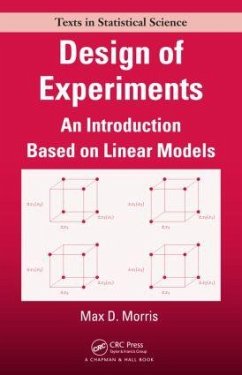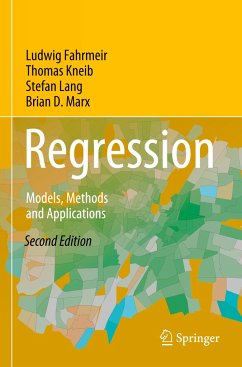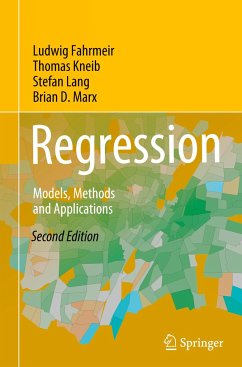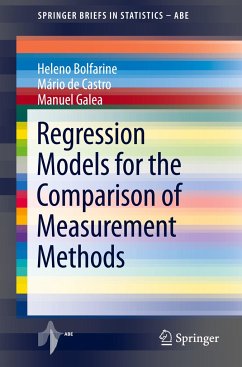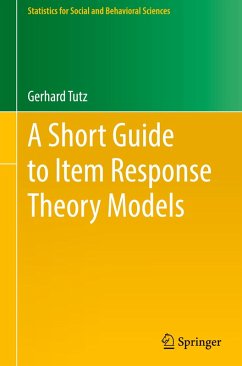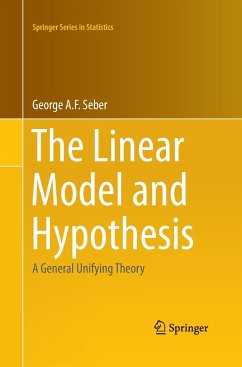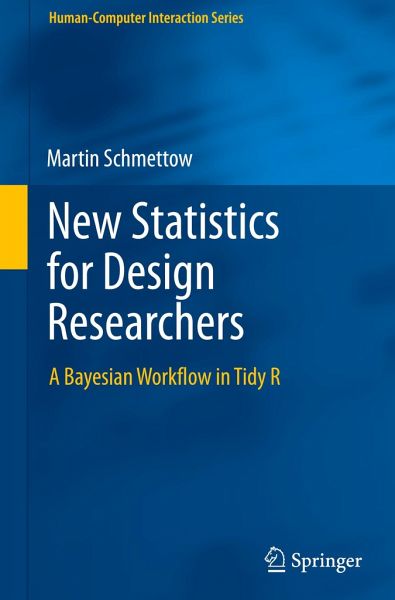
New Statistics for Design Researchers
A Bayesian Workflow in Tidy R
Versandkostenfrei!
Versandfertig in 6-10 Tagen
65,99 €
inkl. MwSt.
Weitere Ausgaben:

PAYBACK Punkte
33 °P sammeln!
Design Research uses scientific methods to evaluate designs and build design theories. This book starts with recognizable questions in Design Research, such as A/B testing, how users learn to operate a device and why computer-generated faces are eerie. Using a broad range of examples, efficient research designs are presented together with statistical models and many visualizations.With the tidy R approach, producing publication-ready statistical reports is straight-forward and even non-programmers can learn this in just one day. Hundreds of illustrations, tables, simulations and models are pre...
Design Research uses scientific methods to evaluate designs and build design theories. This book starts with recognizable questions in Design Research, such as A/B testing, how users learn to operate a device and why computer-generated faces are eerie. Using a broad range of examples, efficient research designs are presented together with statistical models and many visualizations.
With the tidy R approach, producing publication-ready statistical reports is straight-forward and even non-programmers can learn this in just one day. Hundreds of illustrations, tables, simulations and models are presented with full R code and data included.
Using Bayesian linear models, multi-level models and generalized linear models, an extensive statistical framework is introduced, covering a huge variety of research situations and yet, building on only a handful of basic concepts. Unique solutions to recurring problems are presented, such as psychometric multi-level models, beta regression for rating scales and ExGaussian regression for response times. A "think-first" approach is promoted for model building, as much as the quantitative interpretation of results, stimulating readers to think about data generating processes, as well as rational decision making.
New Statistics for Design Researchers: A Bayesian Workflow in Tidy R targets scientists, industrial researchers and students in a range of disciplines, such as Human Factors, Applied Psychology, Communication Science, Industrial Design, Computer Science and Social Robotics. Statistical concepts are introduced in a problem-oriented way and with minimal formalism. Included primers on R and Bayesian statistics provide entry point for all backgrounds. A dedicated chapter on model criticism and comparison is a valuable addition for the seasoned scientist.
With the tidy R approach, producing publication-ready statistical reports is straight-forward and even non-programmers can learn this in just one day. Hundreds of illustrations, tables, simulations and models are presented with full R code and data included.
Using Bayesian linear models, multi-level models and generalized linear models, an extensive statistical framework is introduced, covering a huge variety of research situations and yet, building on only a handful of basic concepts. Unique solutions to recurring problems are presented, such as psychometric multi-level models, beta regression for rating scales and ExGaussian regression for response times. A "think-first" approach is promoted for model building, as much as the quantitative interpretation of results, stimulating readers to think about data generating processes, as well as rational decision making.
New Statistics for Design Researchers: A Bayesian Workflow in Tidy R targets scientists, industrial researchers and students in a range of disciplines, such as Human Factors, Applied Psychology, Communication Science, Industrial Design, Computer Science and Social Robotics. Statistical concepts are introduced in a problem-oriented way and with minimal formalism. Included primers on R and Bayesian statistics provide entry point for all backgrounds. A dedicated chapter on model criticism and comparison is a valuable addition for the seasoned scientist.



